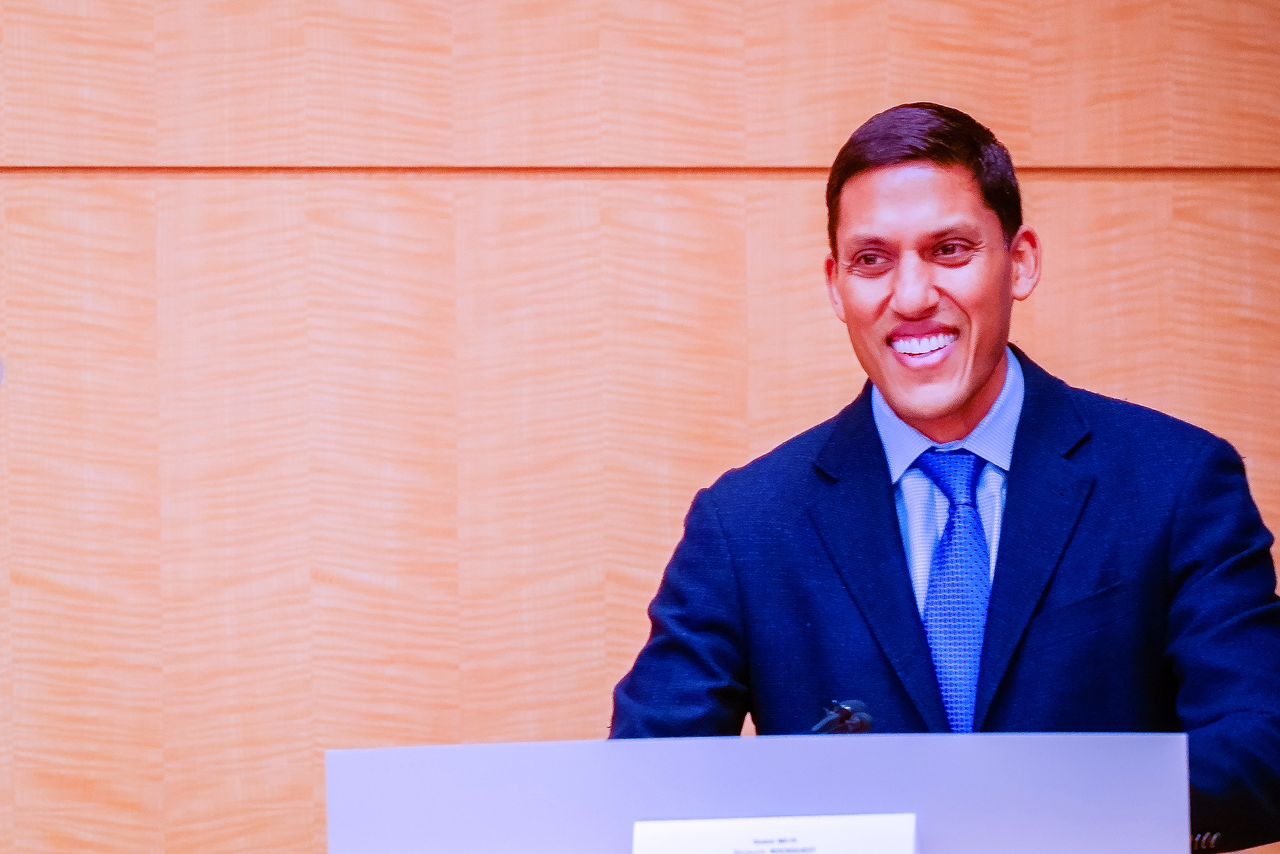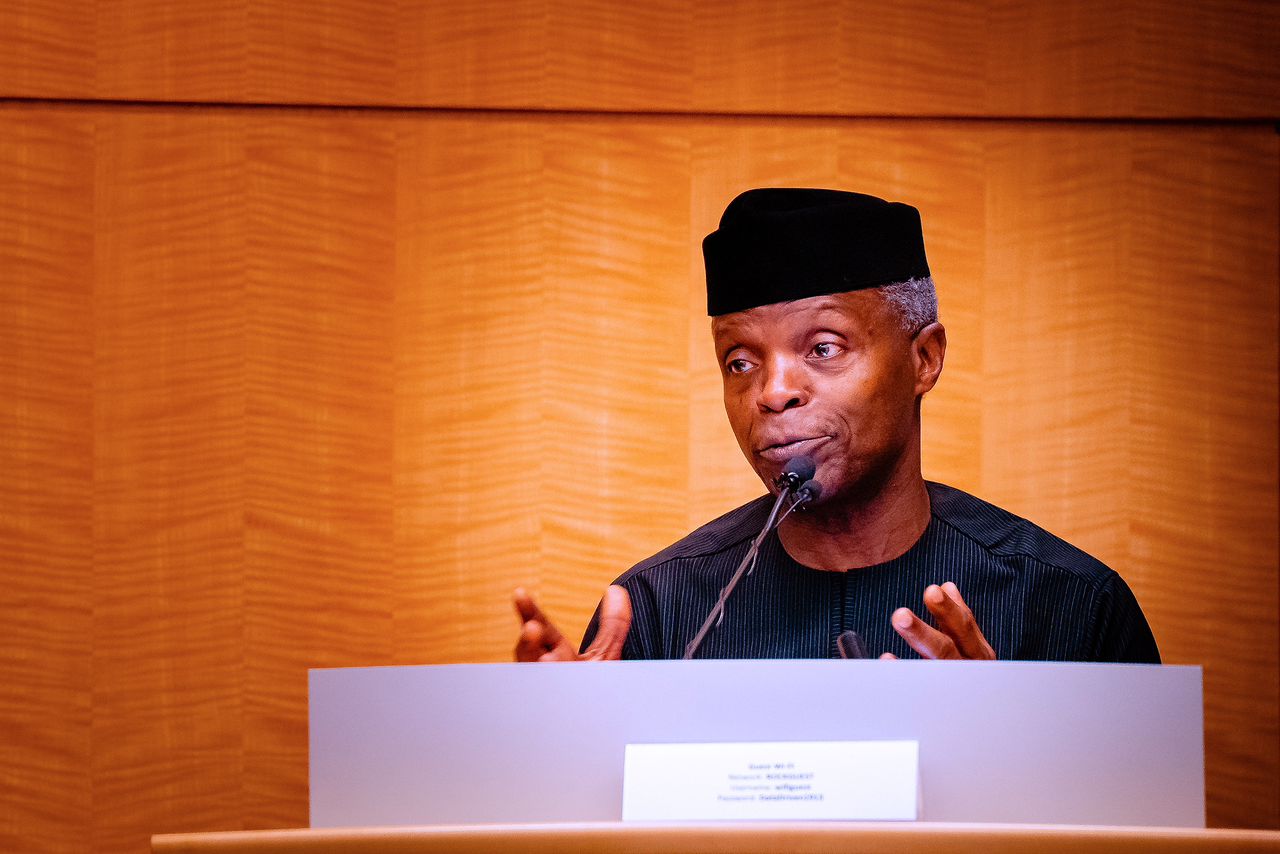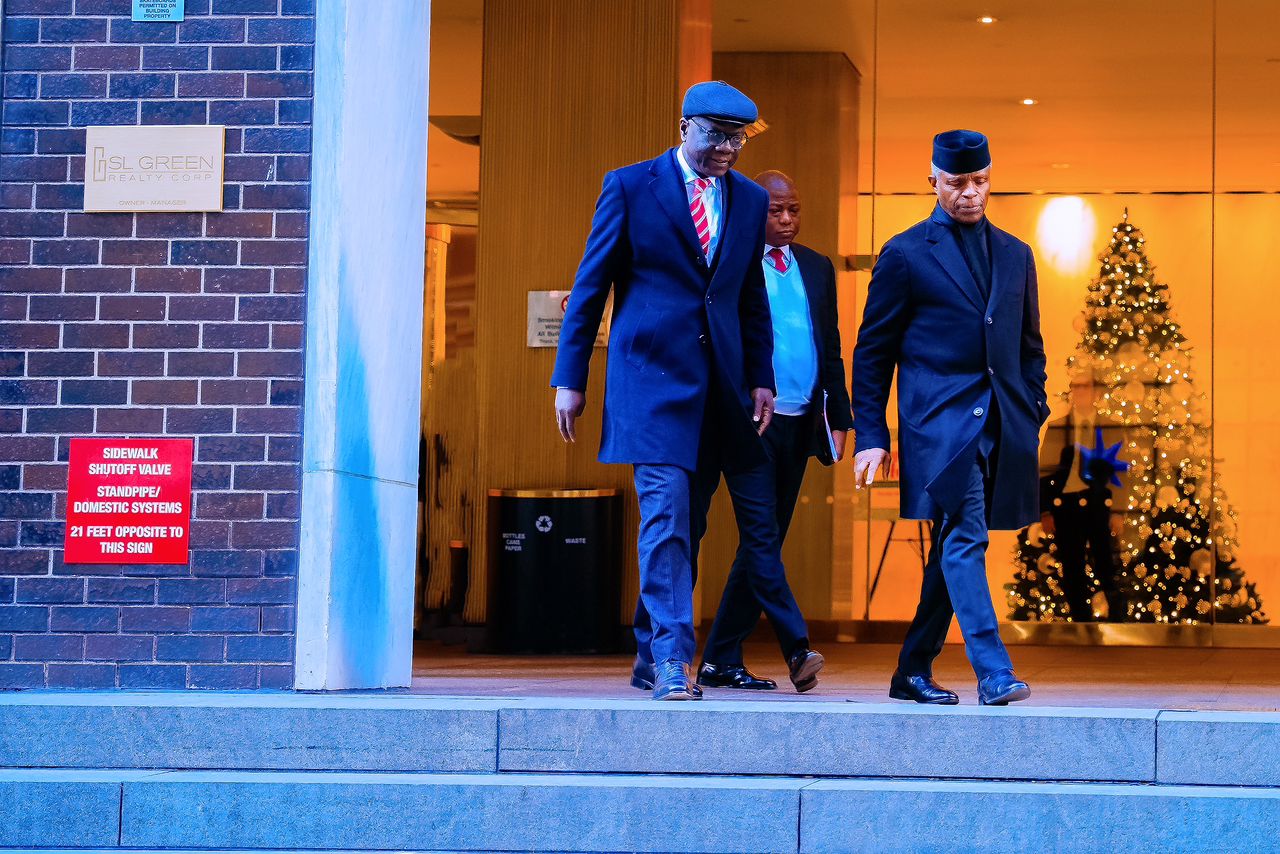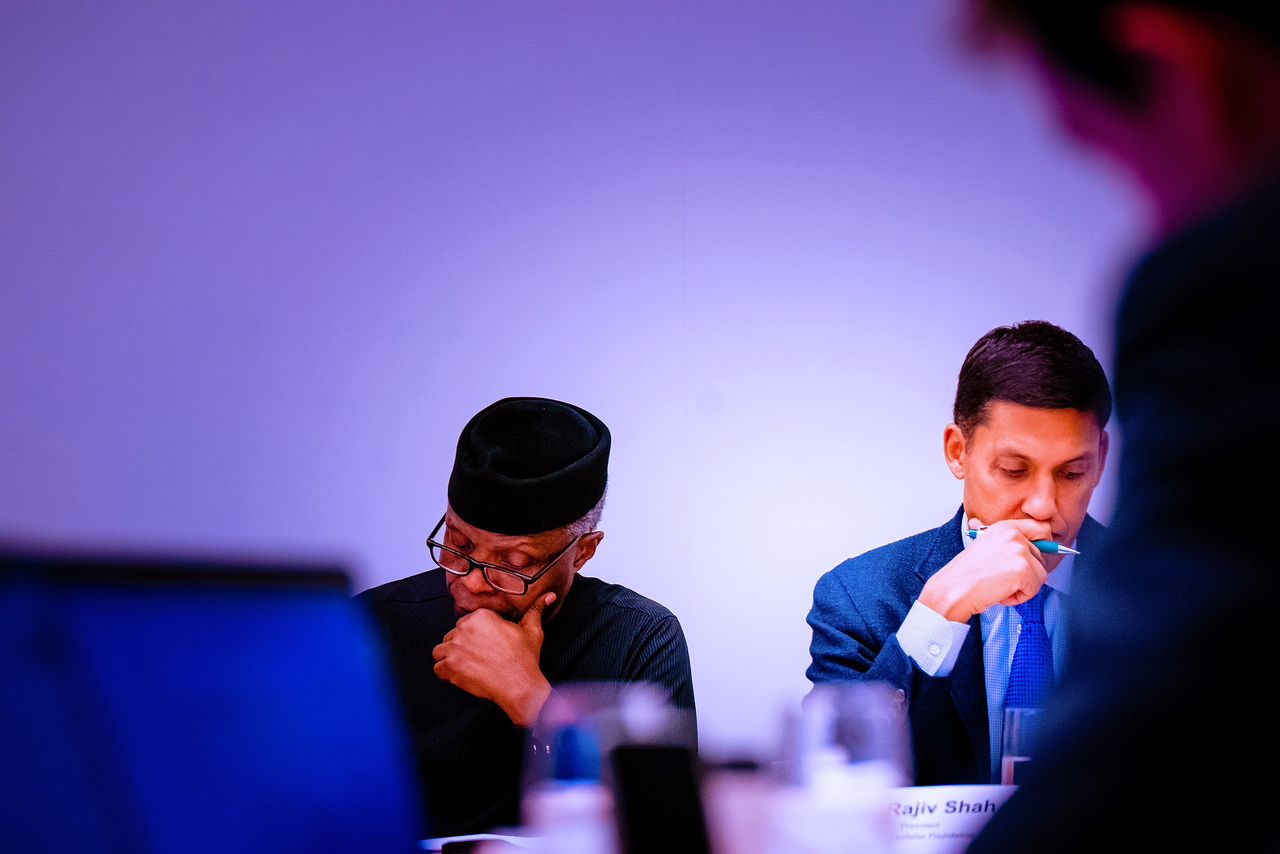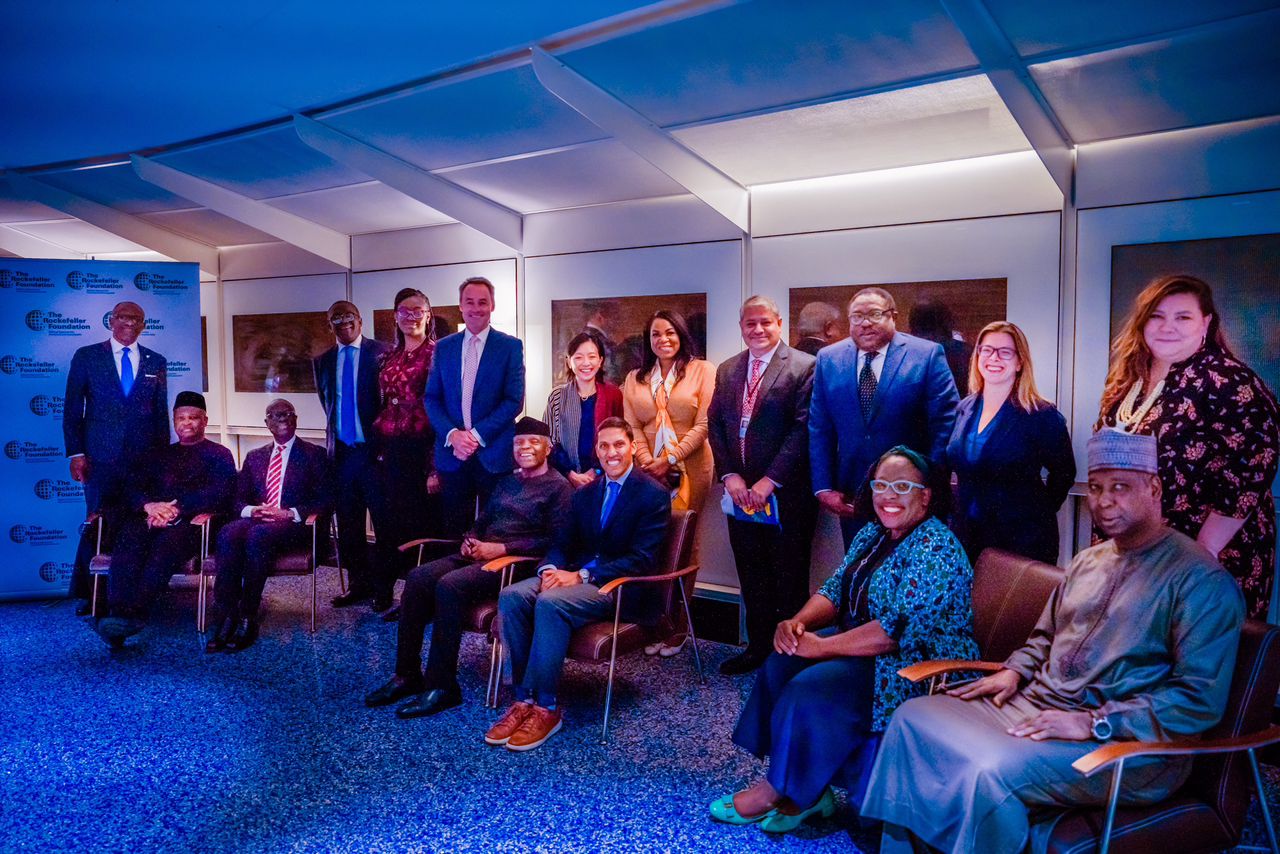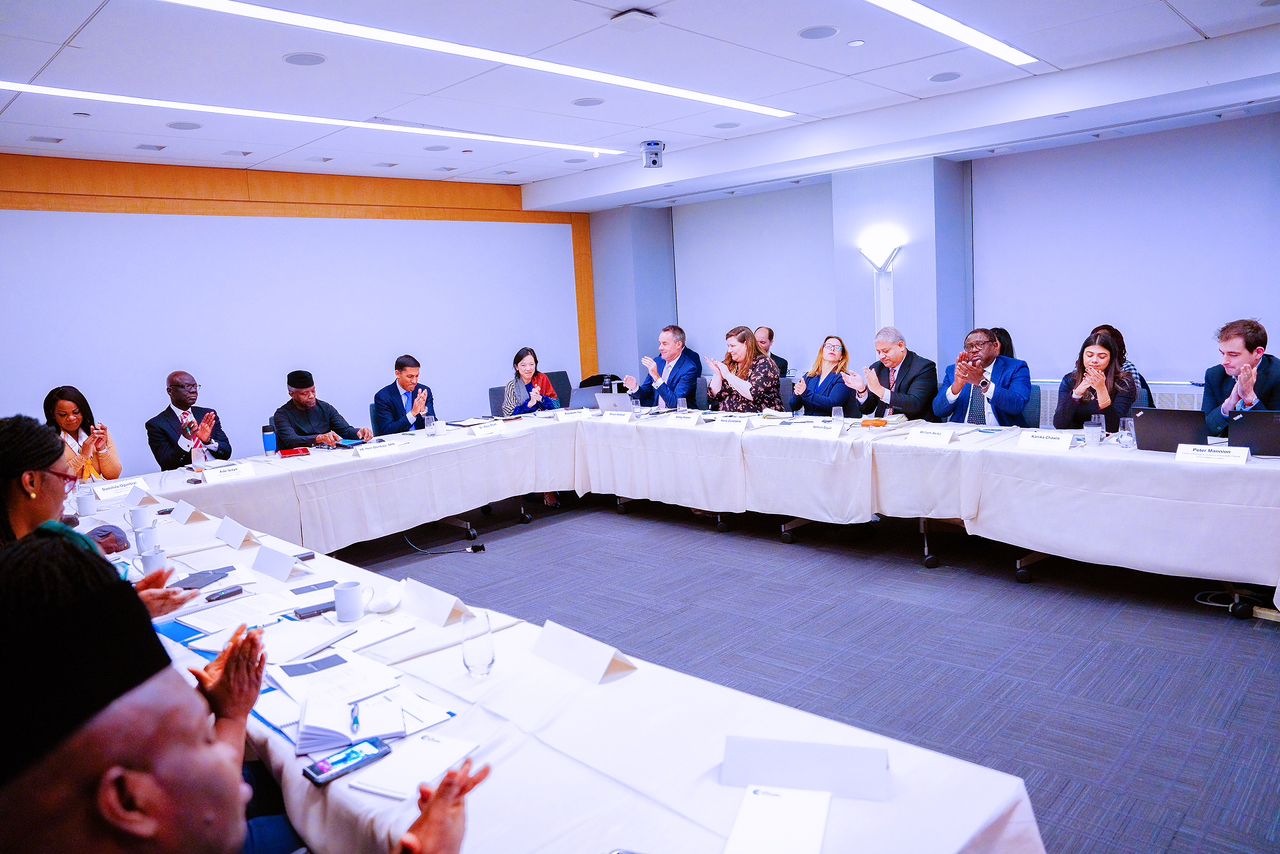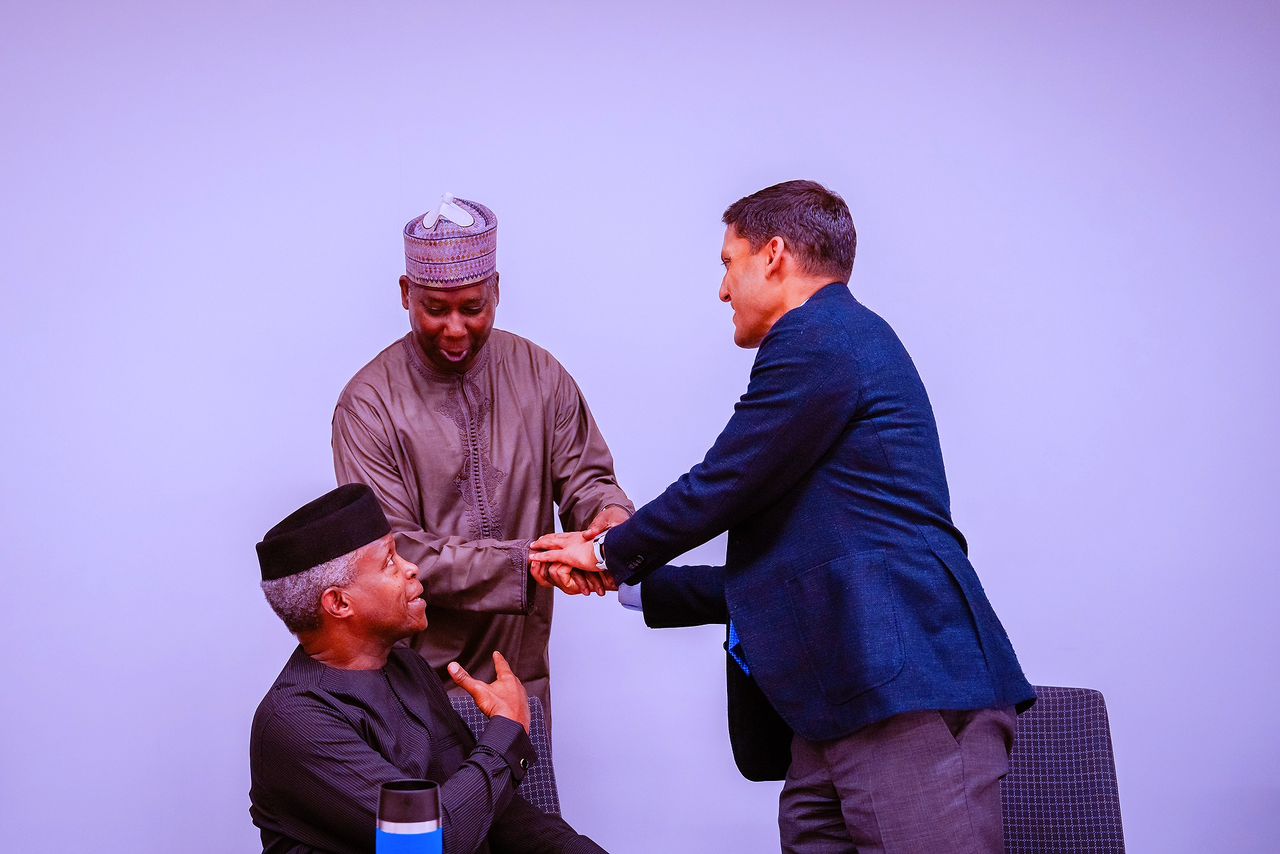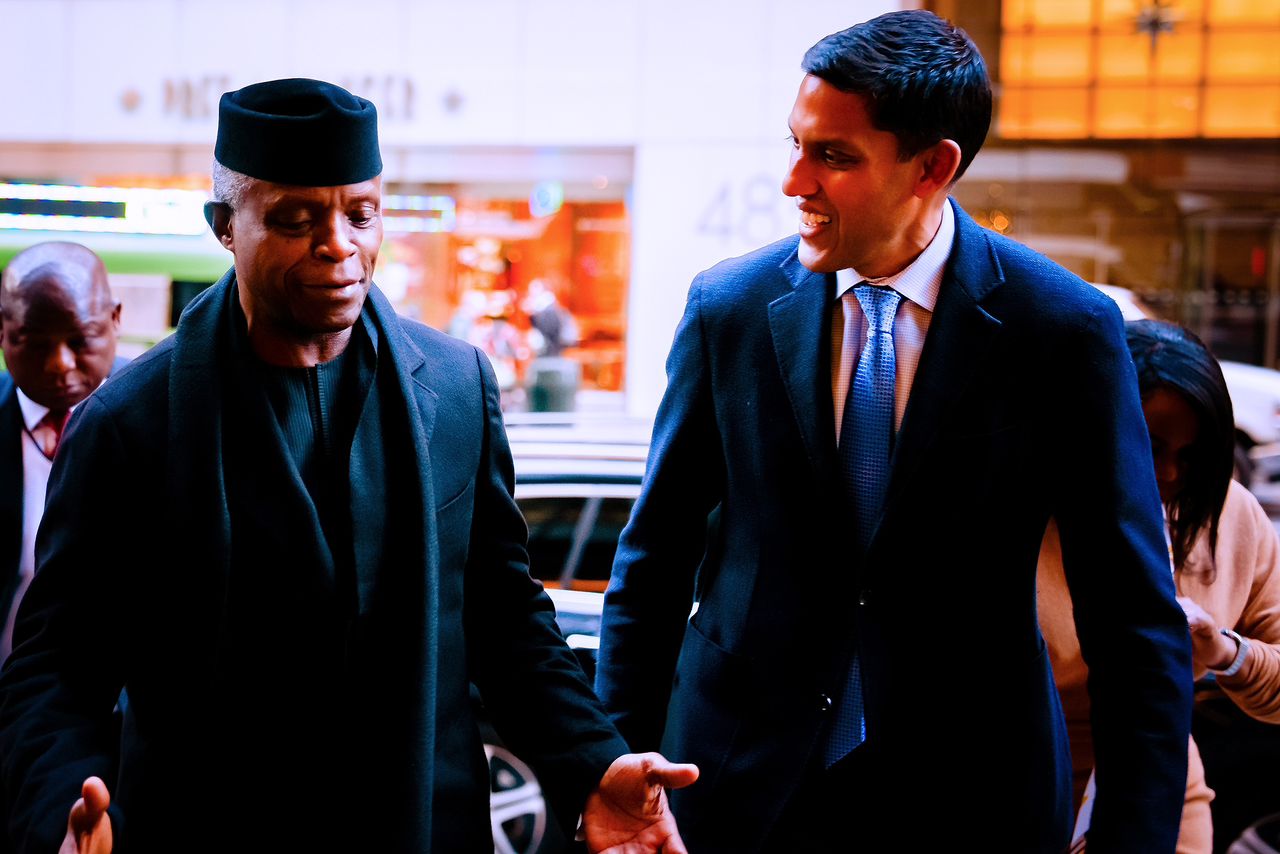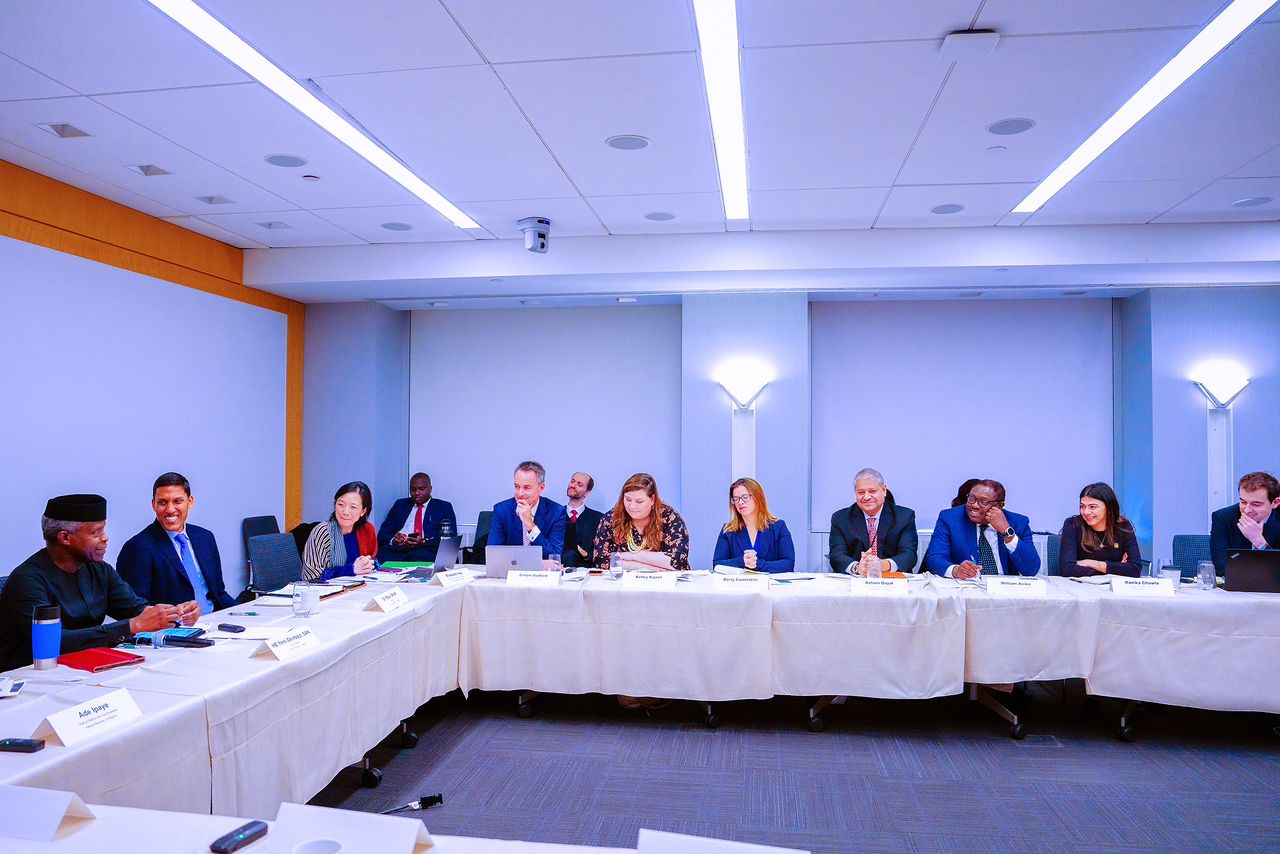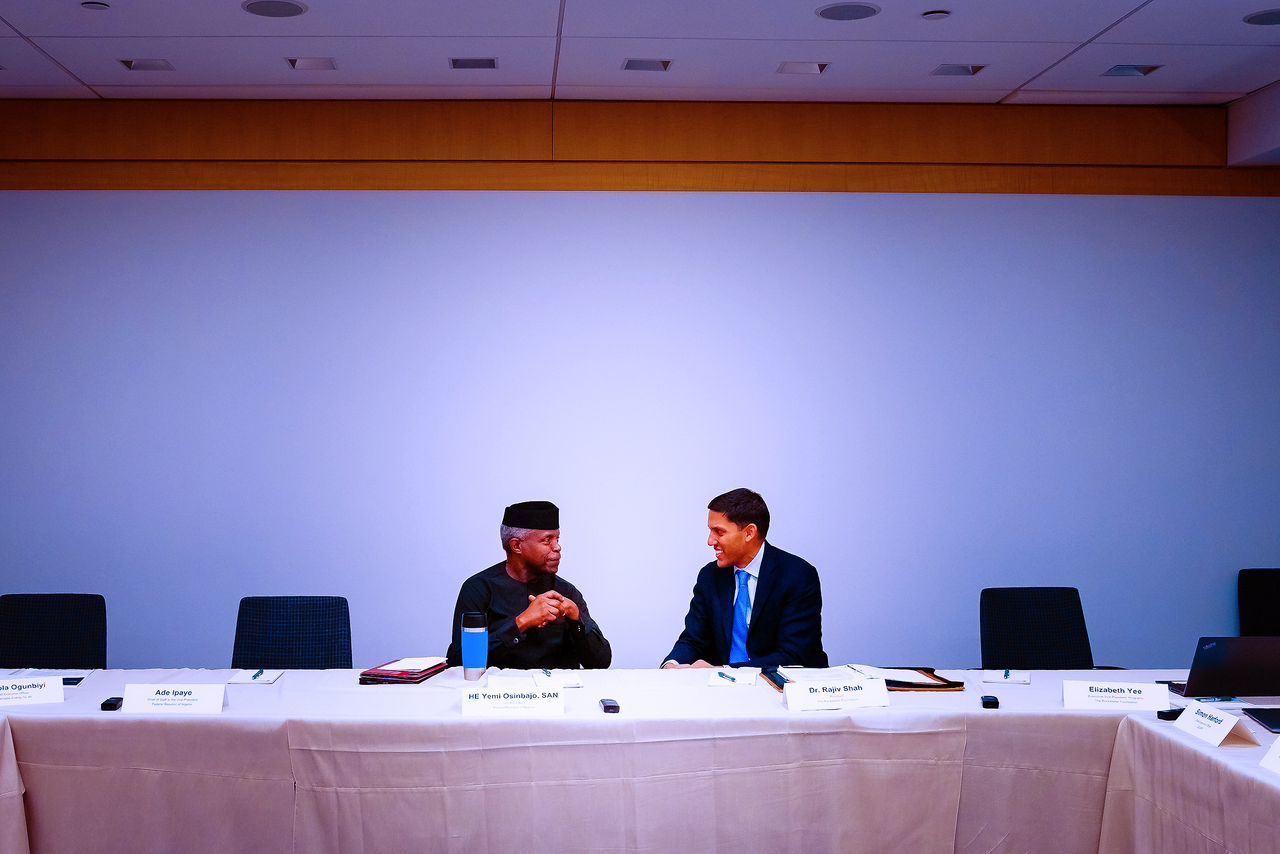African Carbon Market Meeting At The Rockefeller Foundation In New York
KEYNOTE ADDRESS BY HIS EXCELLENCY, PROF. YEMI OSINBAJO, SAN, GCON, VICE PRESIDENT OF THE FEDERAL REPUBLIC OF NIGERIA AT THE AFRICA CARBON MARKET HIGH-LEVEL MEETING AT THE ROCKEFELLER FOUNDATION, NEW YORK ON THE 9TH OF DECEMBER, 2022
PROTOCOLS
It is a pleasure to be here and I have looked forward to this meeting with so many like-minded people who clearly see the importance of building the carbon markets architecture in Africa. I would like to especially appreciate and thank, the Rockefeller Foundation and the Global Energy Alliance for People and Planet for their commitment and support to the Africa Carbon Markets Initiative (ACMI).
I think it’s an auspicious moment for Africa to be participating more fully in the global carbon market conversation, especially in light of the slowing pace of green investment flows into the continent. The work several of us have done together in the past few months makes it clear that the investment required to advance the energy transition in Africa is staggering. World Bank estimates suggest that Africa needs 6.5 trillion US dollars between now and 2050 for mitigation action alone to keep temperatures below 2 degrees of warming.
While other sources are slowing down globally, Carbon Markets are growing rapidly. Africa currently only has a small share of this market, but the current market can be scaled in a massive way – to reach FDI of $120 billion to $200 billion dollars annually. For a continent that needs $240 billion annually in mitigation investment alone, this carbon finance stream could be the difference between transitioning and not.
And as all of us in this room understand well, the priorities of the African continent are not just to act decisively on the climate crisis, but also to create significant growth opportunities for our young and growing population. Nigeria is growing at 5 million people every year, 60% of our over 200 million population are under the age of 30. We just have to answer all of the questions about providing opportunities for them.
I understand that in the next ten years, the projects in the Carbon Market pipeline could create 30 million jobs, and by 2050, have the potential to create more than 100 million jobs in climate-aligned projects. Even if we don’t get those several million jobs, it sounds nice to be able to create jobs and leaders everywhere are going to be motivated by just hearing what is possible. If we were to a proportion of that, we would make a quantum leap in terms of answering to all of the various challenges of development.
This combination of capital flows, job creation, and avoidance of long-term climate destruction are critical drivers of the interest of African leaders in supporting to this effort.
Participating in the carbon market offers Africa the opportunity to pursue growth, industrialization, economic value creation, with the right incentives for clean energy and climate action. We have accomplished a lot in a very short period of time, we very quickly built an alliance in the Steering Committee supported effectively by GEAPP and SEforALL to figure out how to develop a real market-making initiative and as you know, we developed a clear roadmap that laid out 13 action programs for execution. It is great to have Joseph Nganga and Damilola Ogunbiyi, two dedicated African energy experts leading the technical aspect of this global initiative.
And this rapid progress benefitted from the support of a very engaged Steering Committee with President Duque, the UN, GEAPP, USAID, and a range of other public and private sector actors, which resulted in the successful launch in Sharm-el-Sheikh at COP27.
The strong commitment and presence of fellow African leaders demonstrate the willingness and leadership that Africa is ready to offer. We already have 7 African countries (Burundi, Gabon, Kenya, Malawi, Mozambique, Nigeria and Togo) signed up to develop country carbon activation plans and over $200 million in Advanced Market Commitments – which we must continue to further advance as this is going to be the critical driver of action on the Continent.
Beyond the ACMI, other initiatives demonstrate that there is growing acknowledgement of the role of carbon finance. One of the strong points of ACMI and how we must structure it going forward, in terms of governance, is the flexibility to work with other initiatives smoothly, and there will be many others. For example, the Energy Transition Accelerator was announced at COP27 by Senator John Kerry.
Two days before the opening of COP27, Senator John Kerry and I had a conversation about the proposed Energy Transition Accelerator and we both agreed that once the details were worked out, we would develop a collaborative framework with ACMI. The key really in this brave new world of energy transition initiatives is collaboration and synergy. I look forward to speaking to Secretary Kerry and aligning our two efforts – especially on power sector credits, which will be central to keeping up and delivering on the momentum we’ve worked so hard on. As he noted at the launch of the Accelerator the single biggest thing standing in the way of making rapid progress on emission reductions is the absence of money dedicated to the cause.
And we surely can find that money – which is why today’s meeting is both extremely valuable and timely. We all know that the hard part comes next. We have created energy and excitement, and our collective reputations are on the line. We must take responsibility to ensure this exciting momentum is maintained and scaled.
By COP28, I think we need to be able to show real results. I would propose that by COP28, we should be able to deliver the following five things:
- At least 5 countries should have developed country activation plans. Nigeria will be one of them;
- We should have Advanced Market Commitments of over USD 1billion;
- We should be developing new projects based on new methodologies and realities of Africa like diesel replacement credits;
- We should be scaling up more than a dozen project developers or carbon credit suppliers as they would be known then;
- And most importantly, by COP28, we should have retired more than 40 million of credits on the continent.
Nigeria is committed, we passed our Climate Change Act earlier this year, and together with SEforALL and GEAPP, we have also developed our own net-zero Energy Transition Plan.
Carbon markets will play a critical role in the implementation of this plan – in mobilizing the capital required to move to our net-zero economy to a wide trajectory. I want Nigeria to have the first Carbon Markets Activation Plan. I understand there might be some competition from my Kenyan friends, but I am sure we will prevail and more importantly, jointly pave the way forward for our Continent.
I understand that GEAPP, the Rockefeller Foundation and SEforALL have already committed, and I really celebrate that. And today hopefully, we will make more progress in significantly scaling up over the next 24 months.
Given the positive benefits of the ACMI, this feels like it should be an easy conversation. And finally, I’m here to help in whatever way I can. Let me know what I can do to ensure this is a pan-African effort and governments engage fully, advanced market commitments come in, and this initiative continues to advance and in fact, dramatically accelerates moving forward.
Thank you all once again for bringing so much intent to this initiative, and to Raj and the Rockefeller Foundation, for hosting us today.
In addition, thank you to GEAPP and SEforALL for getting us to this point, where we’ve created both hope and expectations. I look forward to our conversation today on how we can use this to create a positive impact on the ground for Africa’s climate and energy transition and economic growth for our continent.
Thank you all very much.


